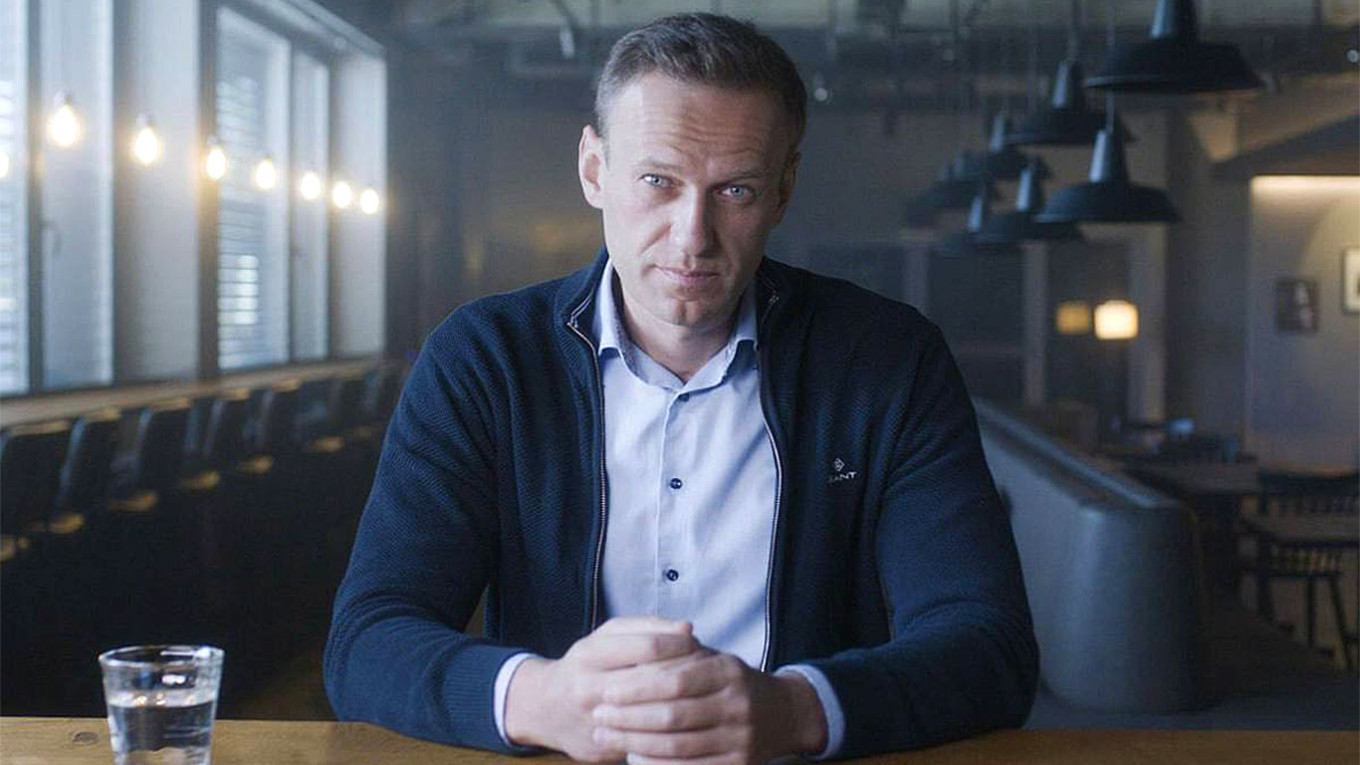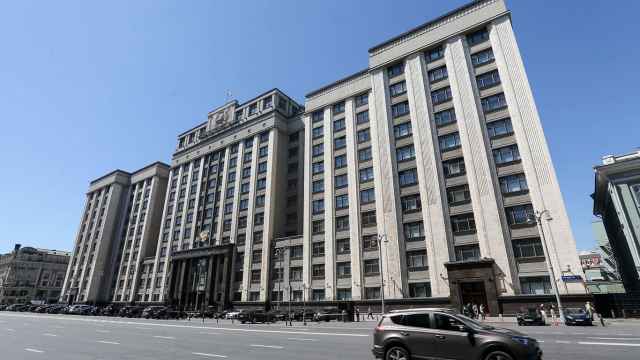MOSCOW – Despite rapturous scenes at Hollywood's Dolby Theater on Sunday night as the documentary "Navalny" was announced the winner of this year's best documentary feature Oscar, anyone relying on Russian state media to find out the news might be forgiven for being none the wiser.
The Monday daytime broadcasting schedule on state-run channels Rossiya-24, Channel One, and NTV looked much the same as ever, with coverage of the Kremlin’s "special military operation" in Ukraine, Russian President Vladimir Putin’s meeting with the head of Chechnya Ramzan Kadyrov, and last year’s Nord Stream gas pipeline explosions, but didn’t mention the Oscars at all.
"Navalny is usually ignored as much as possible," a journalist for Rossiya 1 who asked not to be named told The Moscow Times.
When asked about it by reporters, the Kremlin speculated that the documentary, which details Navalny’s recuperation in Germany following a poisoning attempt with the nerve agent Novichok which he has accused the Kremlin of ordering, had benefited from the “politicization” of the Academy Awards.
"I dare say that there was a certain degree of politicization on this topic. Hollywood is known to politicize its work, such things happen," Kremlin spokesperson Dmitry Peskov told reporters, adding that he hadn’t seen the film himself.
"The Anglo-Saxons are attempting to turn Russian blogger Alexei Navalny ... into a martyr," said the RIA FAN media outlet linked to the head of the Wagner mercenary group Yevgeny Prigozhin, before reminding readers that Navalny's name had been added to a list of organizations and individuals involved in terrorism and extremist activities.
Sputnik, another state-controlled news agency, published an article on Monday implying the award had been made as a "political statement."
"Of course, Navalny won the documentary film award," Film critic Andrei Dementiev told Sputnik, before adding that the academy's decision had been "nothing more than an anti-Russian gesture."
For its part, state-run news agency Interfax published just three paragraphs about the documentary, while state-funded broadcaster RT didn’t breathe a word about the documentary on its Russian service, though RT’s English service published an article about the documentary's win that cast doubt on whether Navalny had ever been poisoned.
Vladimir Legoyda, a spokesperson for the Russian Orthodox Church said in a Telegram post that the Oscars were "not so much evaluating the artistic value of the movies as monitoring compliance with the principles (or, more precisely, diktats) of tolerance,"
Pro-Putin political analyst and former Kremlin adviser Sergei Markov described the academy's decision as "an example of the degradation of the Oscars."
A Message from The Moscow Times:
Dear readers,
We are facing unprecedented challenges. Russia's Prosecutor General's Office has designated The Moscow Times as an "undesirable" organization, criminalizing our work and putting our staff at risk of prosecution. This follows our earlier unjust labeling as a "foreign agent."
These actions are direct attempts to silence independent journalism in Russia. The authorities claim our work "discredits the decisions of the Russian leadership." We see things differently: we strive to provide accurate, unbiased reporting on Russia.
We, the journalists of The Moscow Times, refuse to be silenced. But to continue our work, we need your help.
Your support, no matter how small, makes a world of difference. If you can, please support us monthly starting from just $2. It's quick to set up, and every contribution makes a significant impact.
By supporting The Moscow Times, you're defending open, independent journalism in the face of repression. Thank you for standing with us.
Remind me later.






